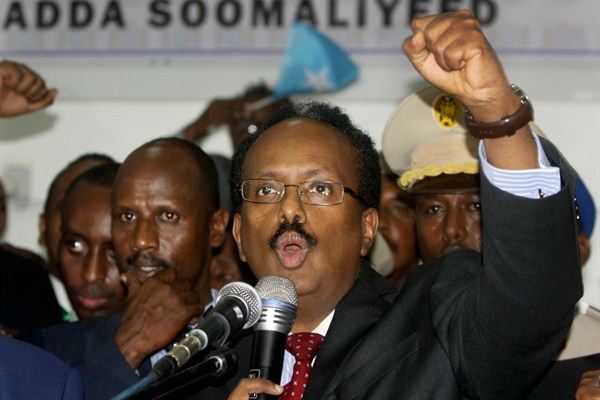Earlier this month, Somalia’s parliament selected Mohamed Abdullahi Mohamed, a former prime minister, to be the country’s new president. Mohamed, known by his nickname, “Farmajo,” is popular among the army and is well-liked by the general public for his efforts to tackle corruption during his time as prime minister. In an email interview, Ken Menkhaus, a professor at Davidson College, discusses politics in Somalia.
WPR: How much support does President Mohamed have in parliament, as well as among local Somalian powerbrokers and the general population?
Ken Menkhaus: We know Farmajo has support in parliament because it was the members of parliament who just voted him into office. The voting offers clues as to the extent of that support. In the first round of voting, which involved 21 presidential candidates, Farmajo actually came in second to the incumbent, Hassan Sheikh Mohamud, trailing him with 72 votes against Mohamud’s 88. But in the run-off, in which lawmakers voted on the top three vote-getters, Farmajo won easily, taking 184 votes to Mohamud’s 97. What this suggests is that Farmajo may not have been the first choice of most lawmakers, but was a clear second choice for most, and was strongly preferred over the incumbent. What we don’t know is whether his selection reflects strong support for him or merely antipathy toward the incumbent. We also don’t know yet the extent to which vote-buying affected the outcome. There was plenty of money allegedly being passed around, but it’s possible that lawmakers took one candidate’s cash and then voted for another. Whatever the explanation, his election came as a surprise, as he was running against candidates with strong regional supporters and large war chests.

